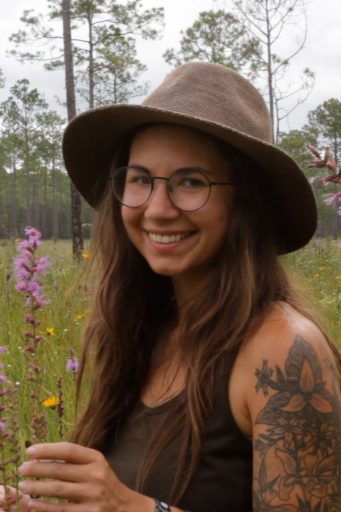 A Florida State University graduate student has received a prestigious fellowship designed to teach scientists how to better communicate science to the general public.
A Florida State University graduate student has received a prestigious fellowship designed to teach scientists how to better communicate science to the general public.
Dani Davis, a graduate student in ecology, was selected to participate in ComSciCon, a fellowship sponsored by Howard Hughes Medical Institute, Council for the Advancement of Science Writing, the National Association of science Writers and the Communicating Science Workshops.
The fellowship was part of the National Association of Science Writers’ annual conference. During the conference, Davis and 20 other scientists participated in workshops about how to better write news articles about science and how to develop interviewing techniques. They also attended sessions on building a successful podcast and working in the media.
“It was really a great experience,” Davis said. “The workshop took me from a place of thinking this was maybe something I could do to feeling like I had the tools to actually do this in a professional way.”
The participants also interviewed scientists outside of their field. For Davis, that meant interviewing Daniel Scheeres, a University of Colorado professor of aerospace engineering.
“It was just a great experience getting to talk to someone so far outside the field of ecology,” Davis said.
Davis got her first taste of science communication working as an outdoor educator at a nature center in Georgia. As a student at FSU, she has made YouTube videos explaining different principles of ecology as a way to get undergraduate students excited about the field.
She also has recently started blogging for the WFSU Ecology Blog.
“Ecologists, like all scientists, can be passionate about what they do and yet also be really poor communicators,” said FSU Professor of Biological Science Thomas Miller, Davis’ adviser. “Dani Davis is remarkable because she has a unique skill to explain ecology to the public, while making it both informative and exciting. This fellowship is allowing her to develop that skill at the same time she is growing as a young scientist.”




